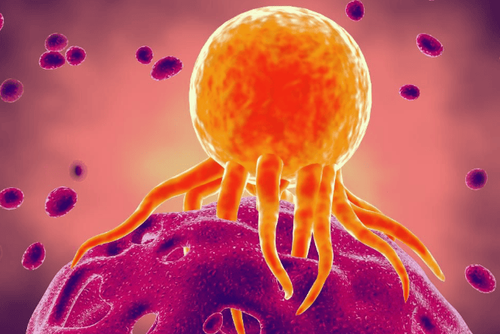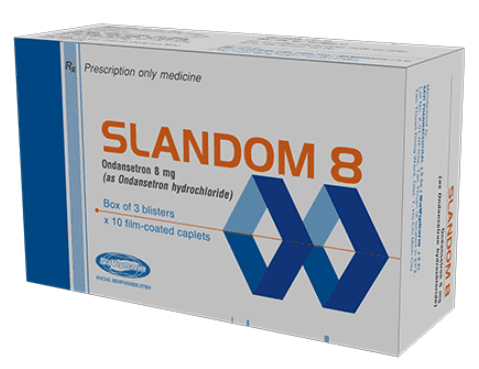This is an automatically translated article.
The article was professionally consulted by Dr. Nong Ngoc Son - Chemotherapy and palliative treatment - Oncology Center - Vinmec Central Park International General Hospital.Cancer patients being cared for at home need to be mindful of pain. In addition to working with your doctor, there are a few ways you can help manage pain at home.
1. Cancer patients can still avoid pain
Severe pain can still be greatly reduced with the use of appropriate pain relievers. Pain relievers work best when taken regularly, on time as directed by your doctor, which can reduce severe pain that occurs – quit. If the cancer is being effectively treated with chemotherapy, radiation, or surgery, the dose of pain medication will be slowly reduced or sometimes no longer needed.If you have persistent cancer pain, the pain can be exhausting. Pain reduces your quality of life and affects the loved ones who care for you. Although cancer pain sometimes can't go away completely, it can be treated to relieve pain to the point where you feel comfortable and able to do some work or personal daily activities.
There are sudden attacks of pain in between taking painkillers. The pain appeared again after 3-4 hours of taking the medicine. For severe pain, pain relief will require 2 or 3 combination drugs. You should tell your doctor in detail about your pain symptoms and pain relief level after taking the medicine so that you can take appropriate measures to adjust the drug.

2. Painful manifestations that need to be treated
The pain does not go away, or is only relieved an hour or two after taking the medicine. Pain keeps you from sleeping Pain stops you from wanting to do your favorite things Pain appears in another part of your body. Pain makes it impossible to walk or workTrắc nghiệm: Thử hiểu biết của bạn về bệnh ung thư
Ung thư là nguyên nhân gây tử vong hàng thứ 2 trên thế giới. Thử sức cùng bài trắc nghiệm sau đây sẽ giúp bạn có thêm kiến thức về yếu tố nguy cơ cũng như cách phòng ngừa bệnh ung thư.
Bài dịch từ: webmd.com
3. What should cancer patients do to relieve pain?
Tell your doctor about your pain: where the pain comes from, how long it takes, how it feels, when it increases and decreases, how it affects your life how. If pain medication doesn't work as expected, talk to your healthcare provider again. Rate the pain by estimating the following: Grade 0 is painless and Grade 10 is the most severe pain. What pain level are you currently feeling between 0 and 10. You can use the numbers 0.1,2,3,4,5,6,7,8,9,10 to describe the pain level for the multiplier. medical staff. Take your pain reliever exactly as directed by your doctor or pharmacist: For persistent pain, it should be taken at regular intervals, rather than just when the pain increases in intensity. Avoid abruptly stopping the use of pain relievers. Instead, you should reduce the dose slowly. You should only reduce your dose as directed by your doctor. Some people feel nauseous even when taking the correct dose of pain reliever. If pain relievers make you feel worse, ask your doctor about changing the medication or using another method to control nausea. Some pain relievers make you drowsy or dizzy. These symptoms usually go away on their own after a few days, but you should ask a loved one to help you get up or walk. You should not drive or do work that could be involved in an accident until you are certain that your dizziness or drowsiness is gone. People taking pain relievers are often given a laxative or stool softener to prevent constipation. Because this is, a common side effect of pain relievers. Monitor any other side effects you feel and notify your doctor. Do not crush or break your pain reliever tablets unless your doctor agrees. Taking medicine that has been broken or crushed can be dangerous. If medication does not relieve the pain, talk to your doctor so that the medication can be adjusted and additional pain relief measures are added. Some special pain relievers will be prescribed every 10 days and you must sign an agreement to use the medicine according to the instructions of the hospital. Try a warm bath or warm washcloth on painful areas: Be careful to avoid irradiated areas. You can also try cool compresses with ice packs. Light massage can also help in certain types of pain.
4. What should caregivers do to help relieve the patient's pain?
Monitor patient for signs of pain: Ask the patient about pain if you notice grimacing, groaning, straining, or difficulty moving in bed. Watch for confusion and dizziness, especially after starting a new medication or changing the dose. Help the patient walk until they feel they can safely do it alone. Suggest fun activities to reduce the patient's thoughts about pain. Plan work and activities when the patient is most comfortable and alert. Help the patient drink enough water and choose foods with fiber. If the patient is forgetful, help them divide the dose and take the pain reliever on time to avoid overdosing. Remind the patient to take a stool softener or laxative to prevent constipation. If the patient has trouble taking the medication, ask the doctor about liquid, lozenges, suppositories, skin patches, or other forms. Check with your doctor before you crush or dissolve pain relievers to make it easier to swallow. Some medicines can cause a dangerous overdose if crushed or broken up. Talk to your doctor so you understand the type of pain reliever and how to use each. Be sure the patient has a complete list of all medications he or she is taking, including pain relievers. If you are helping patients use pain relief patches, make sure you know how cockroaches work and how to safely dispose of used patches. Store pain relievers away from other people, especially children and pets. When you're caring for a sick loved one, schedule time for activities you love and take advantage of rest to recuperate as soon as possible. Share chores with a few other family members. For single cases, you can ask for support from social work organizations, charity, volunteers.5. When should a sick person go to the hospital immediately?
Have severe pain that does not go away with current medication. Analgesics do not last long enough Drowsiness cannot be awakened Confusion, delirium Unable to urinate For patients with terminal cancer who do not respond well to pain medication, modern surgical intervention is the solution. method being applied by Vinmec International General Hospital. Example:
Alcohol denervation to treat pain caused by tumor invasion of peripheral nerves. Canceling the solar plexus in visceral pain in pancreatic cancer, stomach cancer... Canceling the hypogastric plexus in cancers that invade the pelvic region such as prostate cancer, cervical cancer. Continuous epidural anesthesia, spinal anesthesia with intramedullary injection chamber to control symptoms of late stage cancer.... Dr. Nong Ngoc Son has many years of experience in directly treating cancer patients, especially in the field of chemotherapy, metastatic late-stage cancers, and end-of-life patients.
Please dial HOTLINE for more information or register for an appointment HERE. Download MyVinmec app to make appointments faster and to manage your bookings easily.
Articles refer to the source: cancer.org
MORE:
Pain in cancer: How is it treated? Top 5 misconceptions about pain in cancer Pain treatment and palliative care for terminal cancer patients














